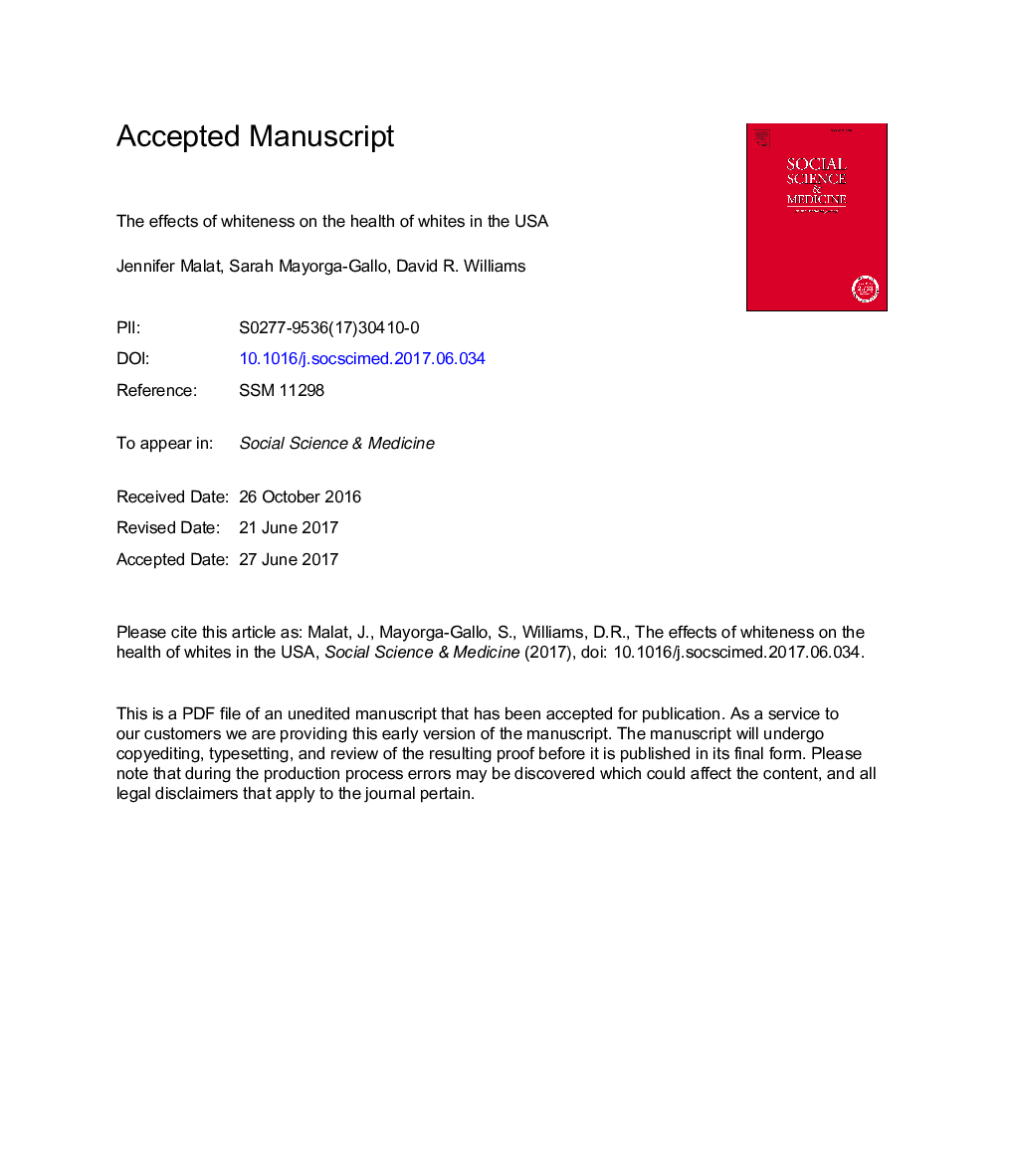| Article ID | Journal | Published Year | Pages | File Type |
|---|---|---|---|---|
| 7328558 | Social Science & Medicine | 2018 | 38 Pages |
Abstract
Whites in the USA are the dominant racial group, with greater than average access to most material and social rewards. Yet, while whites have better outcomes than other racial groups on some health indicators, whites paradoxically compare poorly on other measures. Further, whites in the USA also rank poorly in international health comparisons. In this paper, we present a framework that combines the concept of whiteness-a system that socially, economically, and ideologically benefits European descendants and disadvantages people in other groups-with research from a variety of fields in order to comprehensively model the social factors that influence whites' health. The framework we present describes how whiteness and capitalism in the USA shape societal conditions, individual social characteristics and experiences, and psychosocial responses to circumstances to influence health outcomes. We detail specific examples of how social policies supported by whiteness, the narratives of whiteness, and the privileges of whiteness may positively and negatively affect whites' health. In doing so, we suggest several areas for future research that can expand our understanding of how social factors affect health and can contribute to the patterns and paradoxes of whites' health. By expanding research to include theoretically-grounded analyses of the dominant group's health, we can achieve a more complete picture of how systems of racial inequity affect health.
Related Topics
Health Sciences
Medicine and Dentistry
Public Health and Health Policy
Authors
Jennifer Malat, Sarah Mayorga-Gallo, David R. Williams,
